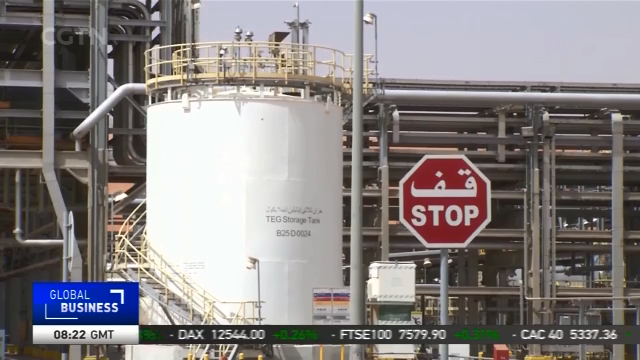
18:48, 22-Jun-2018
OPEC Rift: Members divided on increasing oil production
02:49

The rift amongst OPEC members on whether to increase supply runs deep for this meeting. --Nawied Jarbarkhyl is in Dubai for us with a closer look at the regional tensions affecting the group and how that might impact today's discussions in Vienna.
This could be OPEC's most difficult meeting in years. The group is divided about whether it should ramp up production. The price of oil has more than doubled since the start of last year, as oil exporters have cut supplies. Now Saudi Arabia and non-OPEC Russia want to roll back those cuts. But some OPEC members, like Iran and Iraq are opposed to the move.
ADAL MIRZA, SR. OIL WRITER S&P GLOBAL PLATTS "There are only a few countries in the OPEC group which have the spare capacity to really increase production if the taps are loosened. Saudi Arabia being the most obvious and then there's the UAE and Kuwait. Other producers like Iraq, Iran and Venezuela will struggle to increase their production."
In the case of Iran, looming US sanctions are likely to further dent its production. The current output agreement aims to cut 1.8 million barrels a day from global markets. Compliance with the deal has rallied in recent months, reaching 166% in April. Whether or not there's a new agreement in Vienna this time around, analysts say there's an opportunity to work within the current framework.
SEAN EVERS, MANAGING PARTNER GULF INTELLIGENCE "All they have to do is come back to their agreed cut. 100% compliance to the agreed cut – not 120, not 150, just 100% compliance to what we've already agreed. That in itself would take about 6-700,000 barrels off the market."
Russia wants to raise output by 1.5 million barrels a day. Along with Saudi Arabia, it's concerned about the impact of higher prices on the global economy and on demand. Iran's Oil Minister has ruled out any major deal in Vienna though, and says countries should focus on their existing quotas instead.
SEAN EVERS, MANAGING PARTNER GULF INTELLIGENCE "For the first time in a while, geopolitics are sort of parachuting into the technocratic OPEC process. God knows they have enough disagreements amongst these countries. But, when it comes to one consensus point, we all can agree we want a higher oil price. So, that's the point they need to keep a focus on."
NAWIED JABARKHYL DUBAI "Despite Saudi Arabia's prominent role in OPEC and Russia's clout as the world's largest producer, sources say opposition to their proposal is widespread, including from traditional Gulf allies like Kuwait and the United Arab Emirates. That could make a significant deal harder to achieve in Vienna. But whatever the outcome of the meeting, we're likely to see a tighter oil market in the second half of this year. Nawied Jabarkhyl, CGTN, Dubai."

SITEMAP
Copyright © 2018 CGTN. Beijing ICP prepared NO.16065310-3
Copyright © 2018 CGTN. Beijing ICP prepared NO.16065310-3